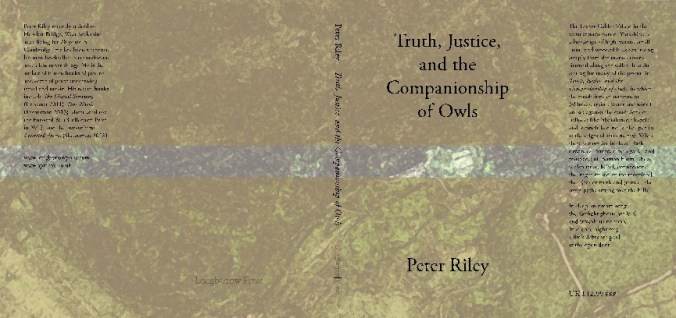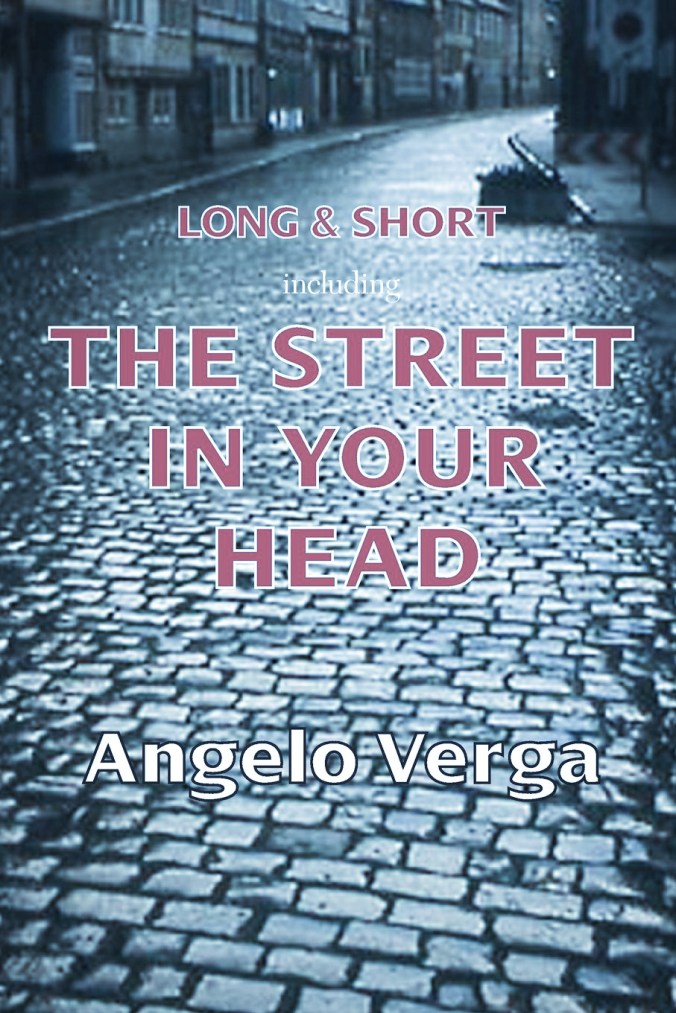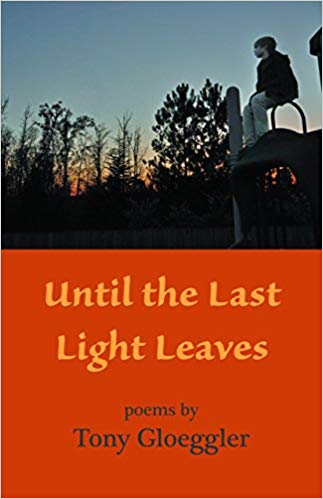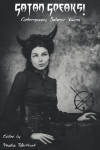Wombwell Rainbow Interviews
I am honoured and privileged that the following writers local, national and international have agreed to be interviewed by me. I gave the writers two options: an emailed list of questions or a more fluid interview via messenger.
The usual ground is covered about motivation, daily routines and work ethic, but some surprises too. Some of these poets you may know, others may be new to you. I hope you enjoy the experience as much as I do.

Peter Riley
was born in Stockport in 1940 and recently moved to West Yorkshire after living for 28 years in Cambridge. In 1966 he was an editor of The English Intelligencer, the worksheet which first proposed a neo-Modernist position in British poetry. Since then he has authored a heap of books and pamphlets, which have now been gathered into a two-volume Collected Poems published by Shearsman (2018). His long poem Due North was shortlisted for the Forward best collection prize in 2016. Dawn Songs, three essays on music, was published by Shearsman in 2017. In May 2019 Longbarrow Press publishing Truth, Justice, and the Companionship of Owls.
Website: http://www.aprileye.co.uk/
The Interview
1. What inspired you to write poetry?
It “happened”. There must have been some impulsion, perhaps the lure of music which I translated into lyrical poetry, and also tales, landscapes, figures, focused on poetry as I grew up. Later it was an ambition for success in a field which was not strictly demarcated, where an individual from nowhere had a chance. I think I always knew there wasn’t going to be anything in it in the way of wealth or prosperity. I think I dreamed briefly of being Wallace Stevens and an insurance executive, until I found that neither of them was easy.
2. Who introduced you to poetry?
At school (which was a boys only grammar school) there was a bunch of friends who cultivated modern poetry and music, haunting second-hand bookshops, sharing finds. This linked with, but was distinct from, teaching at school which reached the early 20th Century as preparation for university. And when I had to wait a year before going to Cambridge I mixed with a group of older poets who met together and talked about poetry (this was in Manchester) but I still hardly ventured to write a poem myself. I knew I probably would one day, but meanwhile I just listened. So the answer is that I was introduced to poetry by a crowd, all talking differently and disagreeing in many respects, but all focused on poetry. Some of the crowd were long dead, such as Keats.
3. What finds did you share at school?
This was the late 1950s, and since we relied on second-hand bookshops (of which there were many and usually with big poetry sections) rather than following the pundits, a lot of what we bought was British poetry of the 1940s, because that was the generation of books now reaching the second-hand market. My method was to take a book from the shelf, read two or three poems, and if I liked them, buy it. This resulted in a heterogeneous collection with a lot of poets in it writing in an unfamiliar manner, some of them difficult to understand. I became interested in this strangeness which later, at college, turned out to be little known and often strongly disapproved of by the teachers and critics. The names I particularly remember are: Nicholas Moore, W.S. Graham, Ruthven Todd, Lawrence Durrell, Vernon Watkins, Alun Lewis, H.D., Rayner Heppenstall, Kathleen Raine… Not all of these stayed with me, but I think features of that period, its particular balance of daring and carefulness, have been important to me in the long run. I also occasionally ordered new books by poets I was told were major figures – Eliot, Auden, Pound, Lawrence, Dylan Thomas, Stevens, Yeats…
4. Which older poets caught your ear in Manchester?
There was a group that met regularly at a city-centre pub to read poems and talk and drink beer, and seemed to be at the centre of the city’s poetry. They called themselves “The Peterloo Goup” though they did not have a lot in common. We don’t seem to hear much of them now, but they were enthusiastic and serious about poetry, and several of them were published by top publishers such as OUP. At least two of them were also painters in an abstract-landscape style. Some wrote very much as “proletarian” plain-speaking poets, others cultivated a sophisticated metaphorical discourse, but both were passionate about what they did. This is what I mainly took on from then, I think. It was through them that I first learned about W.S. Graham. They were very interested in him at a time when he was very little known. I just listened, and anything I dared to write I kept to myself. They included Tony Connor, Robin Skelton, Michael Snow, H.J.Massingham, John Knight, Glyn Hughes…
5. How aware are and were you of the dominating presence of older poets traditional and contemporary?
I wouldn’t say “dominating” but I think even that long ago (we’re talking 1960s now) it was getting like a rather frenetic market with people shouting their wares at you. There was no real guidance for the young poet then (there is possibly too much now). While I was a student in Cambridge I remained isolated and viewed all the noise around me with uncertainty, and still hardly dared write a poem. I think one appeared in a student magazine. But when I found myself in London the situation became more pressing. I was more alone than ever, finding my away around a great city, and I think a voice emerged from this. I felt increasingly that in poetry and otherwise the normal channels of creative career-making were sterile and I turned elsewhere. I was led as if magnetically to Donald Allen’s anthology The New American Poetry of 1960 (from Better Books, Charing Cross Road, of blessed memory) and devoured all of it, but especially Robert Duncan, Frank O’Hara, Allen Ginsberg, Charles Olson and (later) Jack Spicer. Nobody dominated, they were all too distant, it was more like being offered possible channels, but there was some kind of lift-off. What remains of it formed the first section of my Collected Poems (2018) – not a lot, and a mix of different approaches. Still no one saw it, none was published, nobody dominated. All that arrived like a storm in 1965 when the question became how to survive as one of a group of poets all fighting out versions of a new future for poetry.
5.1 Why “especially Robert Duncan, Frank O’Hara, Allen Ginsberg, Charles Olson and (later) Jack Spicer”?
They seemed particularly distinctive, I guess. And old enough to qualify as a father generation. By 1970 three of them were dead. But mainly they clearly represented new ways of writing poetry within a big range. I think there was a short and quite blissful period for me when those four were all I needed, before I got caught up in a doctrinaire group total-Americanisation doctrine. In the long run I could only tolerate particular poems by Olson Ginsberg and Duncan rather than the complete works, which got increasingly messianic and poetry itself became a side issue. The other two actually were poets first and foremost, in different ways.
It’s difficult to explain, or perhaps to understand, what I realize has been a prevalent pattern in my work as a poet, that I plunge into a whole series of allegiances and beliefs which I subscribe to wholeheartedly, but when it comes to writing poems I take a step back, or several, to regain something less ambitious or more ordinary. Around 1965-1969 when I was enjoying discovering these Americans my own writing was by comparison plain-speaking and I think only my disregard for ancestral forms and metrics owed much to them, or the English poets I got to know at that time.
So I won’t go on about how the British poetry scene mid-sixties offered only a stale bourgeois mannerist sterility. I probably thought that, but if so I was wrong, as to some extent my writing hand recognised. I may have thought such things mainly because the American stuff was bright and new and allowed entry into poetry of wider and unendorsed knowledge, or because what was really happening in UK didn’t show itself. And in fact the UK poetry scene mid-sixties also offered its own sorts of abandonment and zonked-out warbling most of which I found naive.
And as far as I’m concerned that is pretty-well the whole story. I became strongly associated with the “Cambridge school”, of which the most impressive and persuasive figure was J.H.Prynne. I eagerly entered into all the discussions and read the recommended poets and critics, and tried to behave properly, but my writing was never 100% committed, and I think only a certain informality and syntactical dramatic freedom connected –things which are now commonplace. But the “Cambridge school” was like that anyway – it was full of disagreements and contradictions and people would write now one way now another. A “school” was the last thing it was.
This association continued through my career, with periodical episodes of alienation or disregard, becoming less specific. Through it I met talented and original poets, whose discussion and correspondence was of great value, especially for testing ventures on them, especially Douglas Oliver, John James, and later, R.F.Langley. And so I went ploughing on, shifting this way and that, occasionally plunging into the group manner and then extracting myself from it and constantly seeking ways of extending the poetic script into bigger comprehensive structures and a theatre of the varieties of perception. For example the long text “Excavations” was deeply involved in disjunctive writing, more so than anything else I have done, but immediately before and after it there are substantial works emphasising connectivity and coherence of both voice and location. It was an undoubted advantage that in those days these choices were not governed by ideological principles. By the late 1970s I was living in an isolated farmhouse in the Peak District, after three years in Denmark, and the writing was involved a lot with the place, but this was mainly a means of attaching it to a linear perspective.
But I was never happy when the specific interests of the Cambridge group, as they were kept alive and developed over the years, started being understood as part of a big division, an enormous split in British poetry between “innovative” and “mainstream” with increasing bitterness and contempt on both sides. It was already getting like that in the 1970s, but it wasn’t originally so antagonistic.
I think what has always been at the heart of it, has been seeking the ways truth can be held or produced in language, finding that singularity of utterance is not enough. What is called “lyric” is the most valuable tool for these purposes, because it can enfold a multi-vocal texture, truth approached on different sides at once. The academics don’t seem to understand the word at all.
This, nor the work of most of the poets I have ever known, never fitted well with the expectations of the British poetry scene at large, especially the celebrities and the aficionados departments. Once you’re categorised as one of the other kind, it stays with you for ever, like an identity, whatever you do, and you get a very small slice of the cake. But increasingly what I did didn’t fit well either with the expectations of the critics and historians of “innovative” poetry and I have been studiously omitted from the surveys and praise-sheets of it, as I should be. This leaves me suspended in the middle of a sphere which is disturbing for those who enjoy their poetry by categorisation, which is most of them. That’s all right, it was bound to happen.
6. What is your daily writing routine?
I don’t think I ever really had one. Generally, the day draws towards its close and with luck there is a calm space which can be filled with receptive or creative activity, as suits you at the time. Occasionally I would notice it was dawn. I’ve also had periods when I only worked casually or part-time, and it was probably then that I got involved in the large-scale works or projects: “Excavations”, “Alstonefield’, ”Due North” etc.
7. What would you say to someone who asked you “How do you become a writer?”
I think I’m about the last person to put this question to. All I know about is poetry, where the conditions are constantly changing or what applies in one part of the scene doesn’t in another both geographically and intrinsically. There’s a mass of advice out there in books and magazines on how to get ahead in poetry, which inevitably carries implicit assumptions as to what kind of poetry to should write. I never did any of it. I didn’t seek to win prizes by studying the way the judges wrote. I rarely submitted, I mainly just waited to be asked. I didn’t make sure the poems I did send out were exactly the length demanded neatly typed and placed in exactly the right kind of envelope with the correct return postage, and I would never have written on a given subject for publication or competition. I didn’t have subjects, I had poems. Most of the advice I have seen has stressed moderation above all else, not to do anything in excess. I’ve seen lists of all the effects (rather than affects) you can use in writing poems but always saying never overdo it. They don’t actually say “never get passionate” but this is what it boils down to. I think that in the creative writing classes it may not be like this, or not necessarily.
Anyway, the question of how you make your name in poetry is becoming redundant, because if you’re one of the lucky ones you don’t have to: your name will be made for you. You can be adopted by poetry youth schemes set up by publishers, and be published, publicised, entered for major prizes, sent on reading tours, awarded residences, and in fact become very well known as a poet before you have anything like a body of work behind you. It’s all founded on instant youth brilliance. And that can work: some of these elected new poets are very good and by no means over-determined by the process, but to believe that this structure is a reliable guide to the best new poetry would show a naïve trust, I think, in the wisdom of the established poetry pundits, a race I have always disliked, whether they belong in the erstwhile experimental or conventional zones.
8. Who of today’s writers do you admire the most and why?
I do a lot of reviewing these days for the Fortnightly Review website, so a lot of new poetry passes before my eyes and I make discoveries every week. I think in many ways the field is wide open and I don’t like to select a few names, which would mean failing to mention others who may not be so active at present or have slipped my mind. Of my own generation and its sequel, I think I admire the poets who have resisted the temptation to fall into the categories we have incessantly been pushed towards, especially of course the Great Divide. Similarly, I suppose, thinking of young poets, those who manage to survive the demands of the “poetry scene”.
So, no names. But I could mention that I’m interested in poetry as “poetical”, meaning that it is a distinct language use, and also involves a sense of scale. This seems to be disliked at present among both young and old, probably thought of as elitist, which it isn’t. I am sick of new poems by all sorts of people which are written exactly as if they are telling you something in a bar somewhere or giving a lecture, plain addressed prose, and the only discernible poetical feature is the line endings, which make no difference. I’ve nothing against plain-speaking poetry nor poetry as therapy, but I feel a need for a richer texture or a stronger brew.
9. How has the move from Cambridge to West Yorkshire affected your poetry about place?
Cambridge was becoming something of a poetical hostile environment. Because of the heavy involvement of the University it became dominated by a militant fervour centred on political identity which dismissed everything else as reactionary. The move was like re-entering a world which valued difference and authenticity. I felt on arrival that my poetry was loaded with a poeticism or even Modernism which would make me like something from outer space, but quite to my surprise it seemed to present no problems, indeed was met with enthusiasm, and a local small press, Calder Valley Poetry, published two pamphlets by me. I find it invigorating to stand alongside creators of northern ballads and comic monologues, straight leftist poetry and reflections on immediate problems of life and emotion, in rhyming couplets or not.
The other thing is that there was a landscape on my doorstep the terms of which seemed immediately available as a vertical structure – river-valley, woods, pasture, and on the top the vast open barren moors. A rich collection of old reverberant place names and the remains of a major industry now fallen into ruin. A lot of other things too, the more mixed population, the grip of ancestry (my father was born in Halifax), the visible power of the pseudo-aristocratic landowners… I don’t know how, but writing the informal lyric, which is what I do, has here become more open to particularities, such as names of all kinds, place-names, persons, from the most local or private to the largest concepts, without creating problems. How they operate as an ensemble.
10. Tell me about writing projects you are involved in at the moment.
In poetry, nothing much doing. I suppose I have a sense that with a two-volume Collected Poems published in 2018, followed by a new book recently, some kind of summation has been reached, and perhaps the world doesn’t really need much more than the 1300 pages I’ve already delivered! What I would like to do is to re-write the history of English poetry during the last century, because I think a terrible mess has been made of it, the overview so cluttered up with all sorts of prejudices both for and against, and so much tribalism, that I don’t see how anyone can get an idea of what really went on. The great majority of what was written is not read or even heard of and we are so secure with our ”major figures”, the academic insistence on a fewness, that we ignore everything else. The 1940s has particularly suffered from massive elimination but it goes right through the century. It’s important because the foundation of what we do now lies in these zones, and I don’t think you can get any sense of the possibilities opened up, especially in the parental generation, without recognising the multiplicity of what went on. And I think there are great discoveries to be made in the darkness that lies behind the accepted history. I’m not writing a new one but I try to tackle these questions one poet at a time in my reviewing.
.










